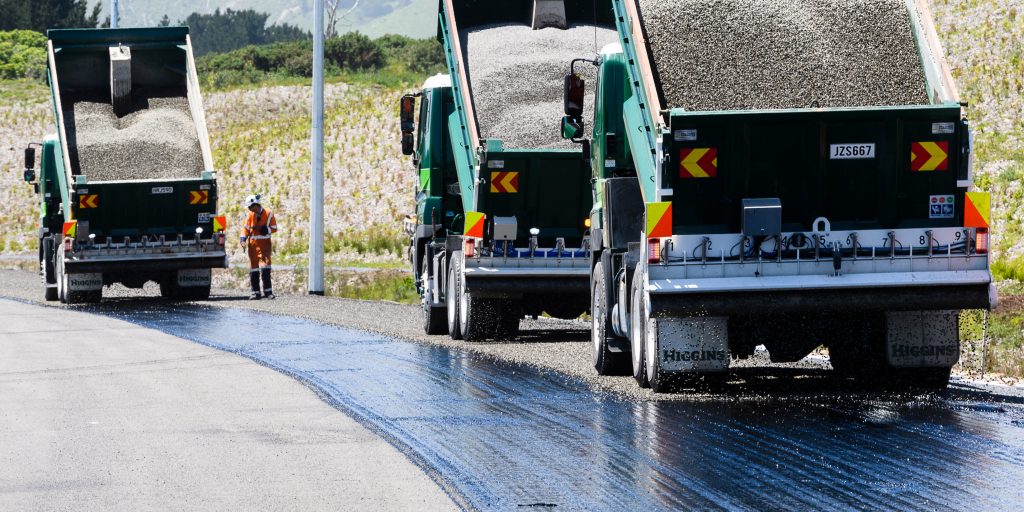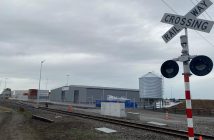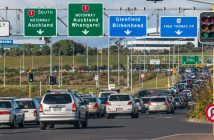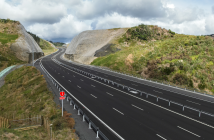Waka Kotahi NZ Transport Agency has announced the challenge topics for its second round of innovation funding after 24 projects were approved for round one

Waka Kotahi received more than 110 applications for the initial round of funding for the $15 million innovation fund Hoe ki angitū, launched in June 2022 to help accelerate the development of solutions to challenges facing the land transport system.
The challenges have deliberately been designed to have a narrow focus. This provides clarity to the sector about the specific problem Waka Kotahi is wanting to solve and the ability to measure the impact the innovation may deliver more easily.
Round two’s challenges are as follows:
- How might we make roadworks safer and smarter to protect workers and other users of the road network?
- How might we reduce the impact of our rapidly growing urban freight task and door-to-door deliveries on our urban environments and people?
- How might we improve the safe and efficient movement of people and goods that are using different modes of transport in the same space, by making better use of new technologies and data?
Making roadworks safer for workers and other road users
Waka Kotahi believes every road worker and road user should go home safely. However, each year approximately 10 road workers or road users are killed and around 30 road workers and road users are seriously injured at temporary traffic management sites.
Manging risks at these sites means either eliminating the risks or, where that is not possible, minimising the impacts. For example, this could be achieved by providing real-time information and guidance to drivers, or by reducing the time people spend in high-risk environments.
It could also be achieved by removing or reducing the consequences of any incident, so what might have resulted in a fatal or serious injury, instead results in a minor injury or a near-miss.
Waka Kotahi is looking for innovative solutions to better protect our road workers and road users.
Reducing the impact of increased freight in urban environments
These changes are leading to the use of more vehicles to meet the increasing demand for deliveries, especially within our city centres and neighbourhoods. If not well managed, this, when coupled with increased housing intensification, risks adding to congestion, environmental and safety issues.
It could also have a negative impact on things like air quality, noise and our streetscapes – due to parking and unloading issues.
Waka Kotahi is looking for innovative solutions to ensure that the growth of urban freight does not negatively affect our environment and people.
Improving safety and efficiency for people using different modes of transport in the same space
Waka Kotahi wants to make sure that people can move easily and safely, using all modes of transport. We know that separating the different modes through the creation of cycle lanes, for example, can be a good solution to improve safety, but this is not possible in all locations.
Waka Kotahi is looking for innovative solutions that take advantage of new technology and data to help people using different modes of transport to use the same spaces in a safe and efficient way.
Who can apply?
Hoe ki angitū is only open to the private sector and non-government sectors, which includes:
- start-ups
- iwi
- domestic and international companies
- community groups
- research institutions
- university groups
Making an application
Applications for round two open in February 2023.
Applicants will need to complete an application form that describes their response to one of the current challenges.
Example application form [DOCX, 390 KB]
Our focus is on supporting innovators to help us solve transport problems. We encourage applicants to contact the Innovation Fund team by emailing [email protected] if they need support with the application process or have any other queries about Hoe ki angitū.
To talk to a team member email [email protected].
What are the assessment criteria?
There are five key assessment criteria. Each will be scored out of 10. These are:
- innovation – how innovative is the solution?
- strategic fit – how does it solve the problem?
- feasibility – is the innovation likely to succeed and is it scalable?
- methodology – is there a clear approach or plan?
- te ao Māori alignment – how will your solution benefit Māori?
Round one results
After a thorough evaluation process, 24 applications have been approved to receive a total of $4.2 million in the first funding round, which asked applicants to respond to three key challenges:
- accelerating the use of recycled materials and sustainable practices
- integrating low emission first and last-mile travel solutions
- providing under-served communities with greater access to transport options.
“Kiwi innovators from the private sector, research institutions, communities, iwi and universities have stepped up to these challenges, with an exciting range of new ideas,” says Transport Minister Michael Wood.
“Successful applications include the use recycled textile fibres in different types of asphalt, the pilot of a small micromobility hub at Auckland’s Panmure Station with a network of mini hubs in the surrounding neighbourhood, and a ‘lease to buy’ e-bike trial, offering low-cost e-bikes or e-bike conversions to people who are underserved.
“The fund is part of the Government’s comprehensive approach to responding to the climate emergency. Innovation is one of the pillars of our Emissions Reduction Plan to drive forward new and quicker ways to respond to the challenges we are facing in the land transport sector.
“Looking at the quality of applications approved for funding gives me confidence that by working together and being open to new ideas Aotearoa can rise to the challenge of addressing even our biggest transport challenges, to deliver a better-connected, cleaner, and safer transport system for New Zealand,” Wood says.
In addition to the financial support being provided through Hoe ki angitū, the successful applicants will also be supported by Waka Kotahi with access to data, transport expertise, help to navigate land transport regulation, and support with real-world testing of solutions.
Funding approved in the initial application round of three transport challenges includes:
- Accelerating the use of recycled materials and sustainable practices
- $141,000 to develop a sustainable process using solvents for the recycling of chipseal, in which the bitumen and aggregate are separated and can be re-used in road surfacing
- $182,000 for a trial to determine the feasibility of using recycled textile fibres in different types of asphalt
- $240,000 to design, test and trial, high-performing, low carbon concrete mixes
- Providing under-served communities with greater access to transport options
- $206,000 for a ‘lease to buy’ e-bike trial, offering low-cost e-bikes or e-bike conversions to people who are underserved on a ‘lease to buy’ scheme, with affordable low-interest repayments
- $100,000 for a community-driven accessible transport trial in Eastern Bay of Plenty, to support seniors/pākeke, as well as people with disabilities, by increasing access to shared transport options in their local community
- $60,000 for an e-bike incentivisation test and trial in Māngere
- Integrating low emission first and last-mile travel solutions
- $508,000 to pilot a small micromobility hub at Auckland’s Panmure Station and a network of mini hubs in the surrounding neighbourhood. The hub will include e-scooters and e-bikes, secured bike parking with power outlets for charging and high-visibility wayfinding to enhance accessibility
- $156,000 for the development of a ‘total cost of journey’ calculator, to build and prototype a logic-based system that presents people with information about their travel choices comparing the costs and environmental impacts of private vehicle vs public transport use.
- $41,000 for a trial of e-scooter rental and recharging on electric buses – providing e-scooters for rental by coach passengers and the conversion of existing zero-emissions commuting coaches to include e- scooter charging capability as a first and last mile zero- emissions solution.
A full list of successful applications can be found on the https://www.nzta.govt.nz/about-us/innovations/innovation-fund/








